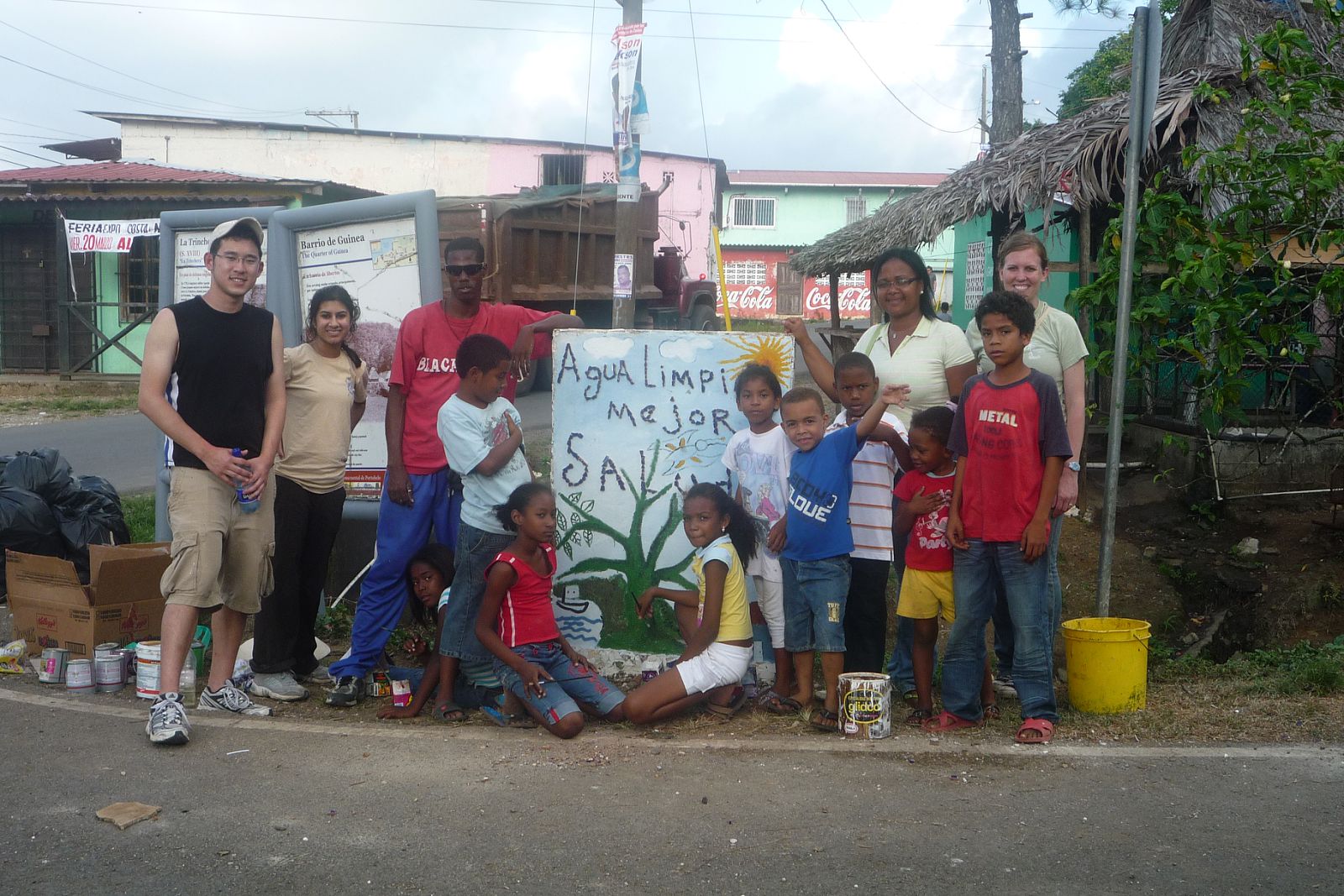PORTOBELO, PANAMA PROJECT
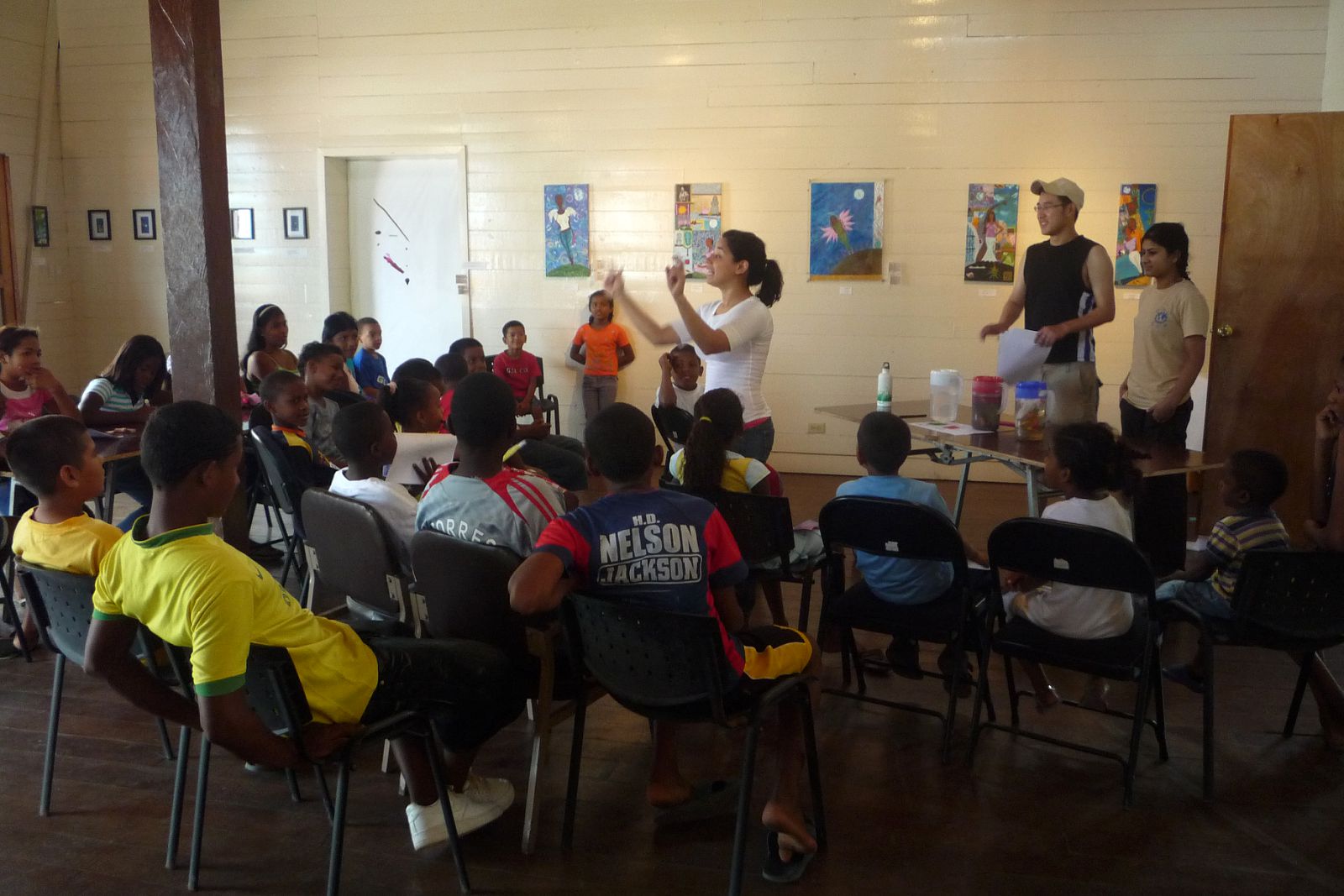
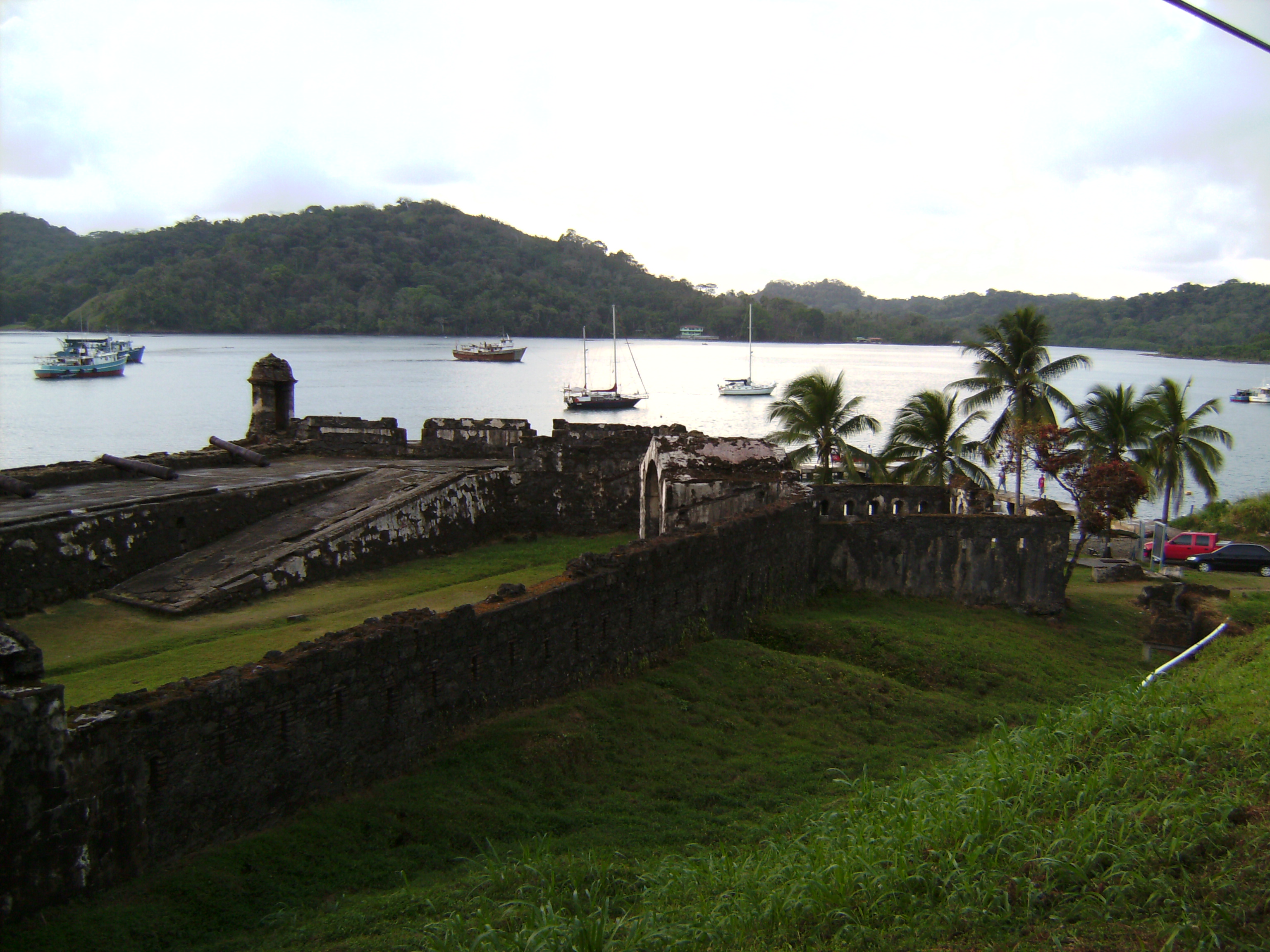
Overview:
The main objective of the Portobelo Wastewater Treatment Project is to improve water quality in the coastal town of Portobelo, Panama, through education and sustainable engineering solutions. The focus of the engineering aspect is an old septic tank serving approximately thirty houses in the community. The septic tank will be rehabilitated to working condition and supplemented by a trickling filter and a sludge drying bed. The focus of the educational aspect of the project is teaching the local children about water sanitation and good environmental practices. These values are reinforced through group lessons, science experiments, and town beautification activities that will hopefully leave a lasting impression on the future leaders of Portobelo.
Problem:
When ESW began the project in Guinea, Portobelo, the community's septic tank had fallen into a state of disrepair due to a poor design and forty years of neglect by the local government. The waste that flows into the septic tank discharges into the creek with minimal to no treatment due to the buildup of decades of waste sediment. This water flows into the town's historic district and bay, detracting from tourism, damaging historical sites, and threatening the public health and environment. The town currently has no means to maintain its septic tanks due to the high cost of removing and disposing of the waste in an environmentally friendly manner.
Solution:
Simple modifications to the existing septic tank can yield tremendous benefits for the community. Modifications have been made to the septic tank to function as a dual-chamber tank, thereby doubling the effectiveness of the water filtration. The future addition of a trickling filter will significantly increase the water sanitation and the construction of a sludge drying bed will reduce costs of maintaining the septic tank while continuing to be environmentally friendly.
Community education is also a high priority. ESW members have led lessons for local children on water sanitation and the harmful effects of littering. In March 2009, ESW members and Portobelo artist Gustavo helped the local children create a mural to remind residents to keep their water clean. This project has made significant progress. A finalized design has been created and the improvements to the septic tank were made in September 2008 and March 2009. These steps were accomplished due to three years of hard work by the Northwestern ESW team, which yielded baseline tests of the wastewater, educational outreach to the local community, the completion of an environmental impact statement to be approved by the Panamanian government, as well as a $75,000 P3 grant from the EPA to fund the initial costs.
The next phase of the project, construction of the sludge drying bed and trickling filter, will take place in September 2009.
Design:
The existing septic tank in the Guinea neighborhood must be redesigned so that the effluent meets Panamanian environmental standards. The septic tank originally functioned as a single stage sedimentation process. After recent modifications, the tank now treats the wastewater in two stages, providing improved water clarification. Effluent from the septic tank will be further treated in a trickling filter, which uses bacteria to feed on the contaminants in the water, thus producing filtered water which will meet government water quality standards. A sludge drying bed, located in a landfill in the mountains, will provide a sustainable, low-cost method to dispose of accumulated sludge in the septic tank. The sludge is deposited on layers of sand and gravel which filter the water that passes into the ground. Dried sludge that remains on top of the bed can be used as fertilizer or simply disposed into the adjacent landfill to help the trash decomposition process. (See the following pictures.)
Wastewater System Design
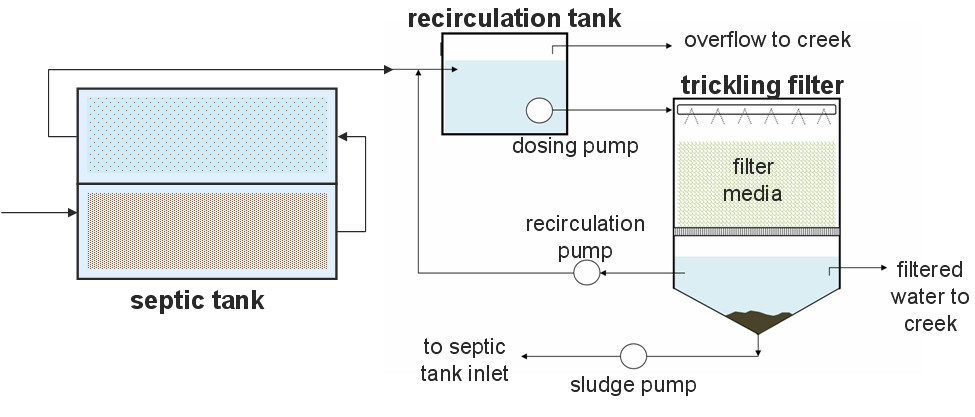
Drying Bed Design
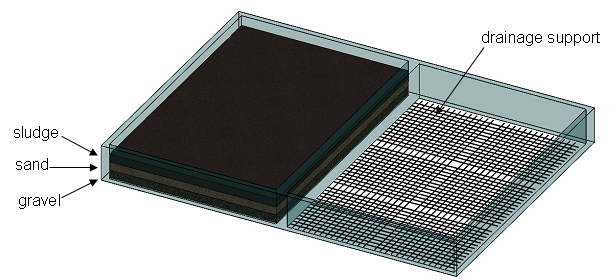
Project Timeline:
September 2008 - Septic tank cleaning, sludge removal
March 2009 - Septic tank modification and pipe replacement
September 2009 - Construction of trickling filter and sludge drying bed
March 2010 - Wastewater treatment system inspection and follow up, maintenance and repair training for locals
Meeting Times:
TBD, if you are interested in this project please contact Christie Barbosa.
Contact:
Christie Barbosa
E-mail: christie.barbosa@u.northwestern.edu
